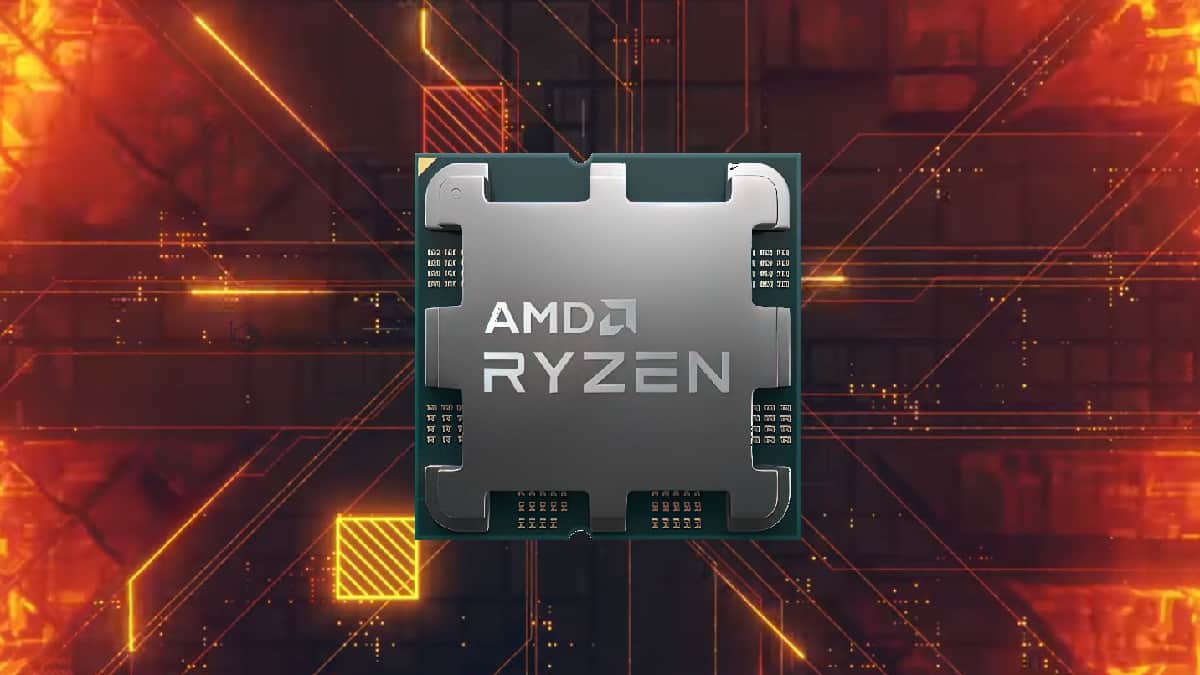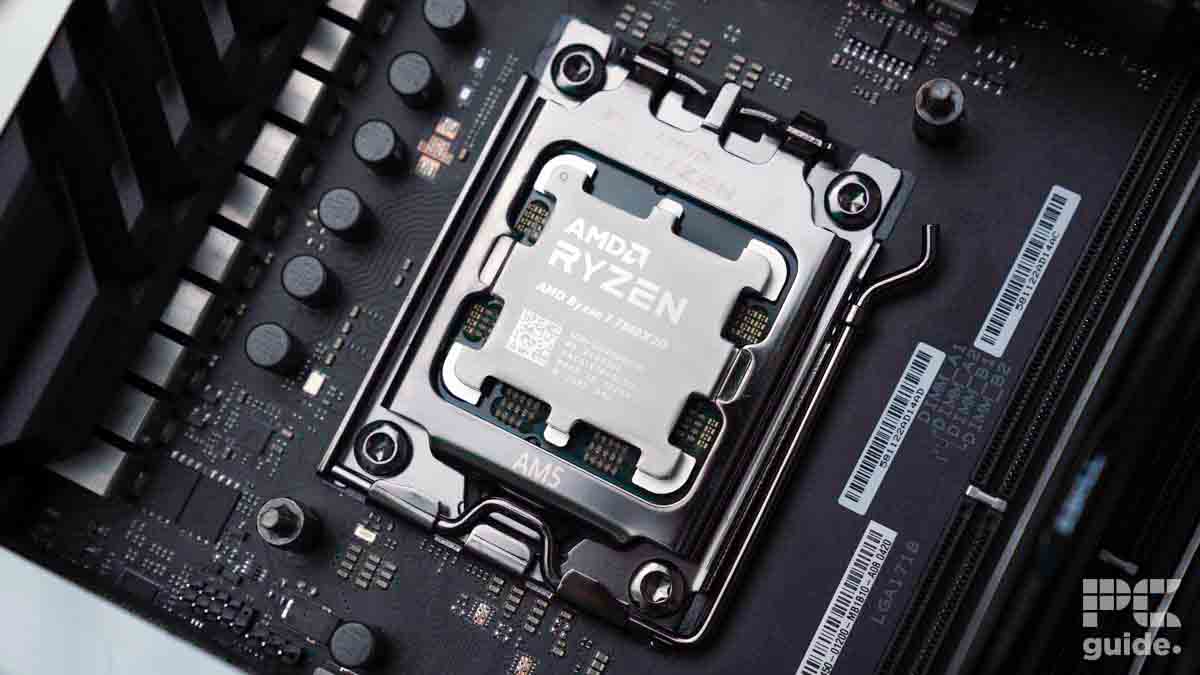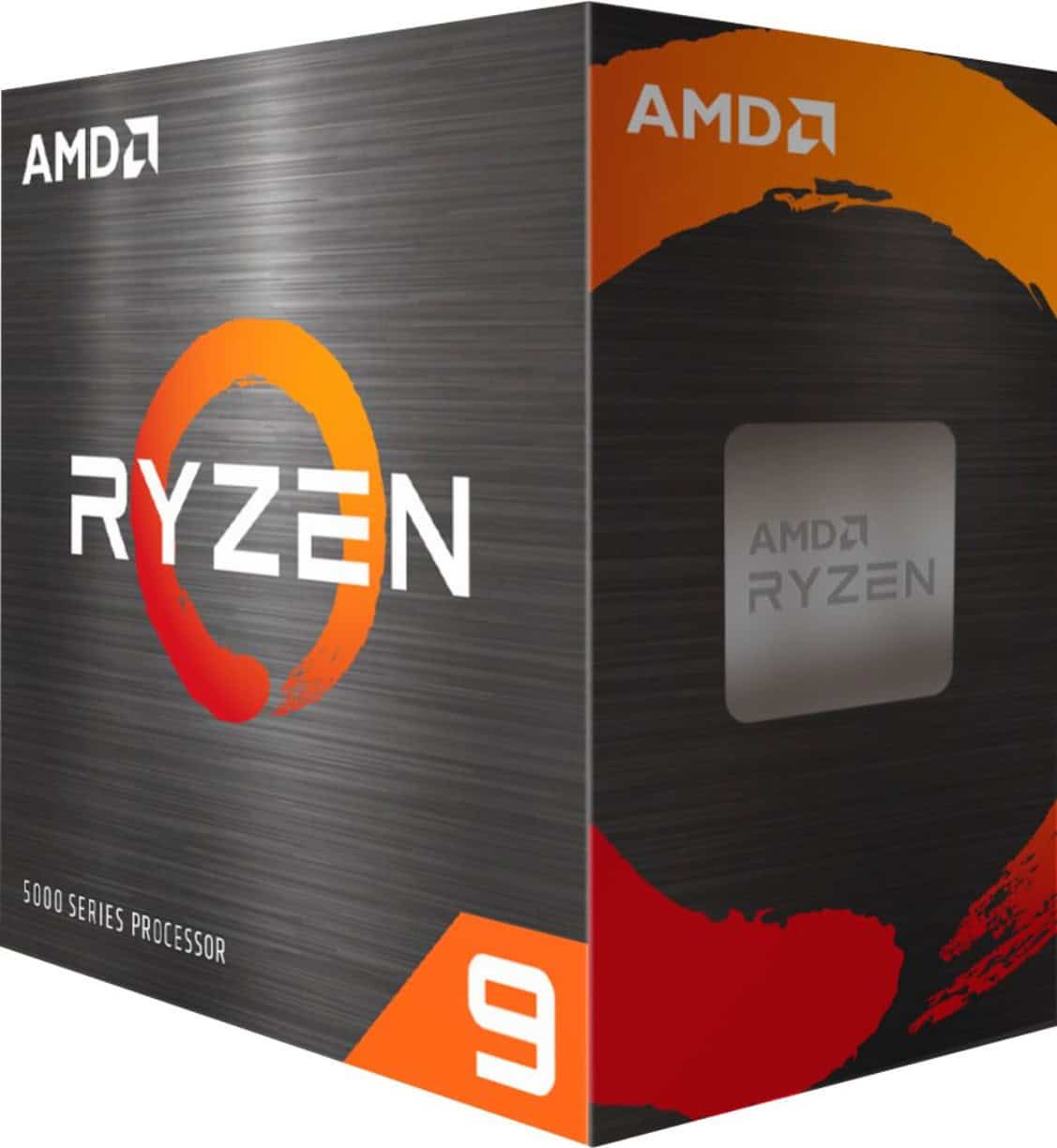Ryzen 7 7800X3D vs Ryzen 9 5900X

Table of Contents
The processor market has seen significant advancements in recent years, with AMD consistently pushing the envelope in terms of performance and innovation. Two powerful contenders in AMD’s processor lineup are the Ryzen 7 7800X3D and the Ryzen 9 5900X. The former is an upcoming CPU based on Zen 4 architecture and featuring 3D V-Cache technology, while the latter is a well-established Zen 3-based processor that has already earned a reputation for its high performance. In this article, we will pit the Ryzen 7 7800X3D vs Ryzen 9 5900X in terms of specs, performance, and price, helping you determine which is the best CPU for your needs.
Ryzen 7 7800X3D vs Ryzen 9 5900X: Specs
When comparing the specifications of the Ryzen 7 7800X3D and Ryzen 9 5900X, there are several key differences to note. The Ryzen 7 7800X3D is based on the newer Zen 4 architecture and a smaller TSMC 5nm process node, while the Ryzen 9 5900X is based on the Zen 3 architecture and a larger TSMC 7nm process node. The smaller process node of the 7800X3D can lead to better power efficiency and performance per watt.
In terms of core and thread counts, the Ryzen 9 5900X has an advantage with 12 cores and 24 threads, compared to the 8 cores and 16 threads of the Ryzen 7 7800X3D. This difference can translate to better multi-core performance for applications that can take advantage of more cores and threads.
| Specs | Ryzen 7 7800X3D | Ryzen 9 5900X |
|---|---|---|
| Architecture | Zen 4 | Zen 3 |
| Process node | TSMC 5 nm | TSMC 7 nm |
| Cores/Threads | 8 / 16 | 12 / 24 |
| Frequency | 4.4 GHz | 3.7 GHz |
| Boost clock speed | 5.0GHz | 4.8 GHz |
| Socket | Socket AM5 | Socket AM4 |
| Cache L3 | 96MB | 64MB |
| TDP | 120W | 105W |
| Launch MSRP | $449 | $549 |
The Ryzen 7 7800X3D has a higher base clock speed of 4.4 GHz and a higher boost clock speed of 5.0 GHz, compared to the Ryzen 9 5900X’s base clock speed of 3.7 GHz and boost clock speed of 4.8 GHz. These higher clock speeds can potentially result in better single-core performance, which is crucial for tasks like gaming and certain productivity applications.
The L3 cache size is another area where the Ryzen 7 7800X3D has an advantage, with 96MB of cache (with 3D V-Cache technology) compared to the 64MB of cache on the Ryzen 9 5900X. A larger cache can improve performance in various applications by reducing the need for the CPU to fetch data from the slower main memory.
Lastly, the Ryzen 7 7800X3D has a slightly higher TDP of 120W, compared to the 105W TDP of the Ryzen 9 5900X, which could result in higher power consumption and potentially more heat generation.
In summary, the Ryzen 7 7800X3D and Ryzen 9 5900X offer different advantages, with the former providing better single-core performance and more cache, while the latter offers more cores and threads for improved multi-core performance.
Ryzen 7 7800X3D vs Ryzen 9 5900X: Performance
Comparing the performance of the Ryzen 7 7800X3D and the Ryzen 9 5900X can be challenging due to the limited availability of benchmark results for the former. However, based on the information available, it is evident that the Ryzen 7 7800X3D will offer excellent single-core performance, which is crucial for tasks like gaming and certain productivity applications. The higher base and boost clock speeds, combined with the 3D V-Cache technology, should provide a noticeable advantage in this area.
On the other hand, the Ryzen 9 5900X, with its 12 cores and 24 threads, is expected to outperform the Ryzen 7 7800X3D in multi-core tasks, such as video editing, 3D rendering, and other CPU-intensive applications. However, it is essential to consider the diminishing returns when comparing the two CPUs, as not all applications can take full advantage of the additional cores and threads.
In summary, the Ryzen 7 7800X3D is expected to excel in single-core tasks, while the Ryzen 9 5900X will have an advantage in multi-core applications. Ultimately, the choice between the two will depend on the specific requirements of your workloads and applications. For more, we strongly recommend checking out our dedicated Ryzen 9 5900X review which goes into more detail.
Ryzen 7 7800X3D vs Ryzen 9 5900X: Price
The Ryzen 7 7800X3D is priced at a launch MSRP of $449, making it a more affordable option compared to the Ryzen 9 5900X, which had a launch MSRP of $549. While the Ryzen 9 5900X offers more cores and threads, which can lead to better performance in some applications, the Ryzen 7 7800X3D has shown to be a better performer in gaming scenarios.
The higher single-core performance of the Ryzen 7 7800X3D, thanks to its higher base and boost clock speeds, and the larger L3 cache with 3D V-Cache technology make it a more appealing choice for gamers. Since most games are more reliant on single-core performance rather than high core counts, the Ryzen 7 7800X3D delivers excellent gaming performance at a lower price point compared to the Ryzen 9 5900X.
For budget-conscious consumers who prioritize gaming performance, the Ryzen 7 7800X3D offers an impressive price-to-performance ratio. While the Ryzen 9 5900X might still be a better choice for professionals who require more cores and threads for multi-core applications, the Ryzen 7 7800X3D is a great option for those focused on gaming and looking for a more affordable CPU that still delivers top-notch performance.
Ryzen 7 7800X3D vs Ryzen 9 5900X: Conclusion
When comparing the Ryzen 7 7800X3D and the Ryzen 9 5900X, it’s important to consider the specific needs of the user. For gamers and those seeking strong single-core performance at a more affordable price point, the Ryzen 7 7800X3D is a compelling choice. With its higher base and boost clock speeds and the innovative 3D V-Cache technology, it delivers excellent gaming performance without sacrificing value.
On the other hand, the Ryzen 9 5900X remains a powerful option for professionals and users who require more cores and threads for demanding multi-core applications. However, it comes at a higher price compared to the Ryzen 7 7800X3D.
In conclusion, the Ryzen 7 7800X3D is an impressive, cost-effective choice for gamers and users who prioritize single-core performance, while the Ryzen 9 5900X caters to those who need more cores and threads for demanding workloads. Ultimately, the decision between the two CPUs should be based on the user’s specific needs and budget constraints.
- NOW READ – Where to buy the Ryzen 7 7800X3D


